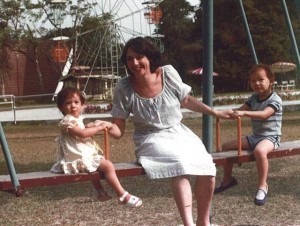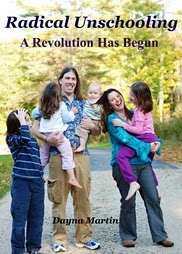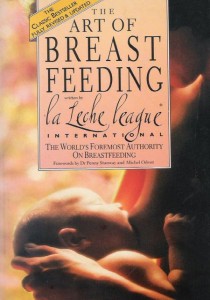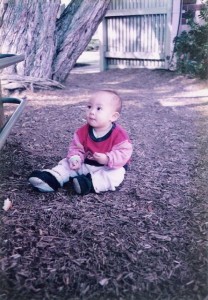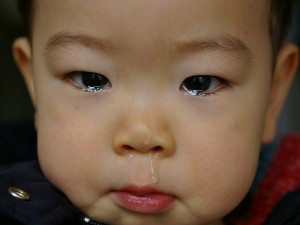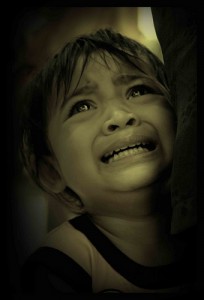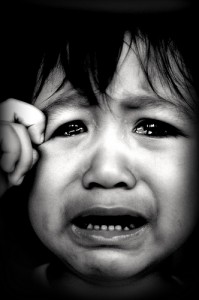Too many parents still believe in corporal punishment as an effective way to ensure that their children are well-behaved and disciplined. Even though it is now illegal to hit children in 25 countries, the debate continues to rage, among parents, over whether or not to whack their kids.
Parents want to know whether it is ok to beat their children when they behave badly or when they are disobedient or stubborn. The short answer is that it is never ok to hit a child, for any reason.
Here’s why not:
Spanking may lower a child’s IQ. Just last September, a US study that tracked 1,510 children over four years, found that children who were spanked had lower IQ scores than their counterparts who were not hit.
Researcher Murray Straus, a professor of sociology at the University of New Hampshire, found that children aged two to four who had been spanked, scored an average of five points lower on their IQs compared to their counterparts who had not been hit; and kids five to nine, recorded IQ scores of 2.8 points lower if they had been spanked.
The evidence also points to the fact that the younger child, the more vulnerable he is to the effects of spanking. This turns on its head the oft-quoted belief that it’s ok to hit small children because they will not remember it when they grow up.
Based on surveys done in 32 countries, Straus found that, as a general rule, countries that had banned spanking had high national IQ averages.
Spanking leads to more bad behaviour in the long term. Hitting your child may get him to do your bidding for the moment, but this is likely to be achieved with a lot of repressed anger on his part.
Another study by Murray Straus, published in 1997, showed that children who were spanked tended to exhibit more antisocial behaviour such as lying, cheating, disobedience, deliberately breaking things, and not feeling sorry after misbehaving.
Straus, who has been studying this topic for more than 50 years, says there have been 110 studies linking spanking to greater misbehaviour in children as well as to adult problems such as increased spousal abuse and depression.
Repressed anger, as a result of corporal punishment, stays in the body and can become the cause of disease in later life. Hitting leaves energetic scars that, although invisible to the eye, contribute to a lifetime of physical and emotional issues that can range from a lack of self-confidence to weight problems to cancer.
Kids learn all the wrong things when they are spanked. Children who are hit learn that loving relationships involve violence and pain and fear. They learn that they are powerless in the face of authority and that more powerful people can use aggression to get what they want (think school bullies!)
Children who are spanked learn that there is something wrong with them, that they are not precious, that they do not deserve respect and all the good things in life. This leads to anger, resentment, poor body and self-image and low self-esteem—all of which interfere with children’s abilities to learn and be creative and successful.
Children who are hit are likely to become hitters themselves. How many times have you heard someone say: “It’s ok to whack your kids if they don’t listen. My father used to cane us. It made us better people”? Hitting is a self-perpetuating cycle. Data has shown that people who were hit as children demonstrate violent and aggressive behaviour and think it is ok to hit their children.
Kids are great imitators and love to copy the adults they admire. When a child hits her baby brother as part of playing mummy then something has definitely gone awry. Children who are spanked at home take it out on smaller kids in the playground and at school (think school bullies again!)
Hitting leaves parents feeling terrible. A 2005 survey by the children’s charity NSPCC (National Society for the Prevention of Cruelty to Children) revealed that six out of 10 parents in the UK, of children aged up to four, admitted they had hit their child, with 48 per cent of these claiming that it was an overreaction.
When parents hit their children, they almost always end up feeling awful. After the event, they usually feel guilty, remorseful and lose confidence in their ability to be a good parent. At the same time, the child loses respect for the parent, which only makes the parent feel worse.
Hitting damages the trust between parent and child. Our children trust us to protect them and have their best interests at heart. When that trust is broken and a child’s sense of security invaded, effective communication between parent and child is shattered. The child no longer has respect for the parent, nor for himself. Corporal punishment creates a vacuum between parent and child and devalues the parent-child relationship.
Children who are spanked do not learn how to resolve conflict and anger in a mature and effective manner. Instead, they are likely to get the idea that every relationship is a battlefield and that conflict is best settled with force. When a child grows up believing that ‘might is right’, all his future relationships will be affected in a negative way.
Spanking may end up in abuse. It is easy for corporal punishment to escalate. It may start with a light smack on the hand, but if the child continues to disobey the parents’ wishes the light smack could get harder and harder. Physical blows to the body can be harmful to young children, who may sustain injuries as a result.
Spanking increases the risk of sexual problems as adults. When a child is spanked on her buttocks—an erogenous zone—she may begin to associate pain with pleasure, which could lead to perverted or masochistic sexual practices in adulthood.
In addition, the sense of low self-esteem associated with being beaten may cause children to use sex as a way to feel better about themselves. Research has shown that teens who were beaten as children were more likely to coerce their dating partners into having sex or to engage in risky or masochistic sex.
